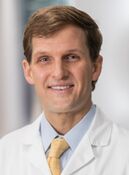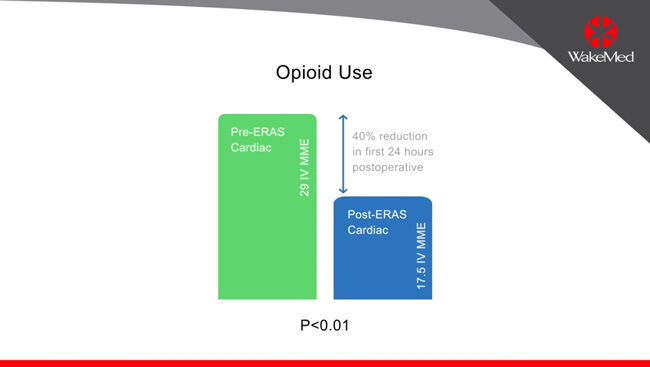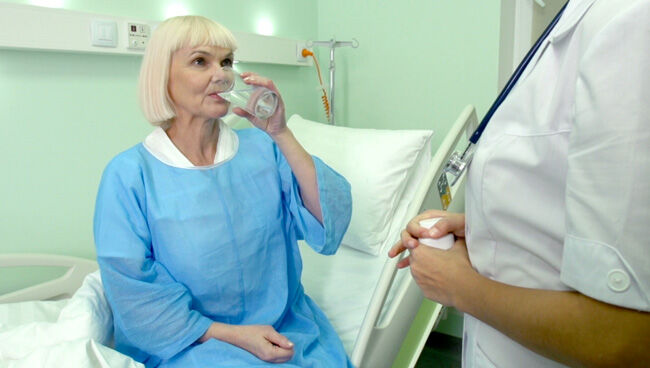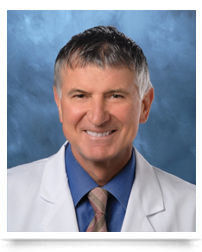ERAS for Cardiac Surgery: Top 5 Facts with Dr. Judson Williams
Written By: Adam Pick, Patient Advocate & Author
Medical Expert: Judson Williams, MD, Cardiac Surgeon, WakeMed
Published: February 16, 2023
Enhanced Recovery After Surgery (ERAS) is a revolutionary approach to improving patient outcomes that is now being adopted by leading cardiac centers that specialize in heart valve repair and replacement procedures.
To learn more, we interviewed Dr. Judson Williams, a leading heart surgeon at WakeMed in Raleigh, North Carolina. It’s important to note that Dr. Williams was responsible for developing the first ERAS cardiac surgery program in the United States.
Key Learnings About ERAS for Cardiac Surgery
Here are several important learnings from our discussion with Dr. Williams:
- ERAS stands for enhanced recovery after surgery. While the ideas and processes in ERAS have been applied to many other surgical specialties, the application of ERAS to cardiac surgery is relatively new. “It’s been applied to other surgical specialties for decades but really only applied in a standardized fashion to cardiac surgery within the last few years,” states Dr. Judson. “It’s an interdisciplinary best practice, best evidence process for helping patients recover from a new heart valve or whatever heart surgery they need.”
 Dr. Judson Williams (Heart Surgeon)
Dr. Judson Williams (Heart Surgeon)
- One of the key components of ERAS for cardiac surgery is reducing opioid use for pain management following heart valve surgery. “Up to as many as 20% of patients prescribed opioids after an elective surgery will develop some type of opioid use disorder. This is one of the most frequent complications that we seek as surgeons to avoid,” states Dr. Williams. “In our program, we’ve reduced opioid use overall by 40%. Over 50% of our patients now are leaving the hospital with no need for an opioid prescription.”

- Carbohydrate loading is part of ERAS for cardiac surgery given its counter-intuitive benefits for patients. “Carbohydrate loading is a very interesting topic to surgeons, to anesthesiologists, and to patients alike,” states Dr. Williams. “It really is the idea that by giving the patient a carbohydrate beverage two to four hours prior to their operation, we can stimulate the gut, we can stimulate the pancreas, improve gut motility, improve glucose control and many of the outcomes associated with those.”

- Best practices and process standardization is the foundation of ERAS. Dr. Williams states, “Enhanced Recovery is an aggregation of marginal gains that result in a big gain for the patient at the end. By standardizing best practice preoperatively, inter-operatively, and postoperatively for the patient, we are achieving those small gains at each step along the way.”

- ERAS protocols are designed to mitigate the risk of infections before, during and after surgery. “An infection prevention bundle should be a component of any surgical procedure, big or small,” states Dr. Williams. “This is especially critical for heart surgery and certainly for heart valve surgery patients. It’s the idea ERAS provides that platform for applying best practice and best evidence at every step of infection prevention.”
- Goal-directed therapy is deployed to keep the patient’s recovery on track. Dr. Williams states, “It’s the idea that we use the latest monitoring tools in an algorithmic way to know how much fluid a patient needs after heart surgery. Many heart valve patients will remember being very swollen after their operations. Having too much or too little can influence things like length of stay in the hospital, acute kidney injury, and other complications. We now have great minimally invasive technologies that can provide real-time data from the patient to guide an individualized approach, goal-directed, to fluid administration for patients after their heart valve surgery.”
Many Thanks Dr. Williams & WakeMed!
On behalf of our patient community, many thanks to Dr. Judson Williams for taking the time to share his clinical research and experience with us. In addition, we would like to thank the entire WakeMed team for taking such great care of heart valve patients.
Keep on tickin!
Adam
P.S. For the deaf and hard of hearing members of our community, I have provided a written transcript of Dr. Williams’ interview below.
Video Transcript:
Adam Pick: Hi, everybody. It’s Adam with heartvalvesurgery.com. This is a special surgeon question and answer session all about five important components of enhanced recovery after cardiac surgery. I am thrilled to be joined by Dr. Judson Williams, who is a leading cardiac surgeon at WakeMed in Raleigh, North Carolina. During his extraordinary career, Dr. Williams has performed over 2,000 cardiac procedures, with many involving some form of heart valve repair or heart valve replacement. Dr. Williams, it is great to see you again. Thanks so much for being with us today.
Dr. Judson Williams: Hi, Adam. Thank you for having me. It’s great to be with the heartvalvesurgery.com community.
Adam: Dr. Williams, I notice you are not at WakeMed today. You’re at a conference. Can you share with the patients where you are and why is it so important for them to know about?
Dr. Judson Williams: You’re right, Adam. I’m in Denver. We’re at Society of Thoracic Surgeons Critical Care Conference, and with that, an Enhanced Recovery after Surgery component. ERAS is really revolutionary for cardiac surgery. ERAS stands for enhanced recovery after surgery. It’s been applied to other surgical specialties for decades but really only applied in a standardized fashion to cardiac surgery within the last few years. It’s an interdisciplinary best practice, best evidence process for helping patients recover from a new heart valve or whatever heart surgery they need.
Adam: Dr. Williams, I’ve got to share with you in the community, when I went through my recovery, one of my biggest challenges was an addiction to Vicodin for pain. Got to start this off with a question of what are surgeons and medical teams like the one at WakeMed doing to prevent that today?
Dr. Judson Williams: Adam, thank you for sharing your experience. Certainly, you are not alone. Up to as many as 20% of patients prescribed opioids after an elective surgery will develop some type of opioid use disorder. This is one of the most frequent complications that we seek as surgeons to avoid. That’s one of the pillars of ERAS, Enhanced Recovery after Surgery, is a multimodal approach to analgesia to spare opioids. In our program, we’ve reduced opioid use overall by 40%. Over 50% of our patients now are leaving the hospital with no need for an opioid prescription. Their pain is well controlled. They’re moving. They’re getting around. They don’t need those medications, which is a huge win for the patients and for the community.
Adam: Dr. Williams, no doubt that’s a huge win. Now let’s talk about something that’s almost counter-intuitive, which is carbohydrate loading. Can you share for the patients what that is and how it’s helping them?
Dr. Judson Williams: Carbohydrate loading is a very interesting topic to surgeons, to anesthesiologists, and to patients alike. It really is the idea that by giving the patient a carbohydrate beverage two to four hours prior to their operation, we can stimulate the gut, we can stimulate the pancreas, improve gut motility, improve glucose control and many of the outcomes associated with those. This challenges that traditional dogma that a patient shouldn’t have anything to eat or drink the night before their surgery. We’ve really had outstanding results with the carbohydrate load.
Adam: Dr. Williams, that is fascinating to learn about. Now let’s talk about best practices or this idea of processed standardization. How is that helping you and all these other surgeons enhance patient recovery?
Dr. Judson Williams: This is a great question, Adam. Really standardization is the foundation of Enhanced Recovery. Enhanced Recovery is an aggregation of marginal gains that result in a big gain for the patient at the end. By standardizing best practice preoperatively, interoperatively, and postoperatively for the patient, we are achieving those small gains at each step along the way. Preoperatively, that may be exercise and diet and cessation of alcohol or smoking. These are important preoperative components. Interoperatively, it’s the sterile environment, the best tools, the best technologies. Postoperatively, it’s infection prevention, it’s early ambulation, removal of tubes and wires and lines. When we standardize these practices and do it in the right way the best we know how every time for every patient, that’s really the foundation of ERAS.
Adam: Dr. Williams, love hearing about big gains for patients. Let’s talk though about a concern that patients have, which is infections. What is the ERAS approach doing to help mitigate the risk of an infection?
Dr. Judson Williams: This is a great question, Adam. An infection prevention bundle should be a component of any surgical procedure, big or small. This is especially critical for heart surgery and certainly for heart valve surgery patients. It’s the idea ERAS provides that platform for applying best practice and best evidence at every step of infection prevention. Before the patient even arrives for their surgery, they should be tested for MRSA, a drug-resistant bacteria, and treated if that is present. It lives on the skin of many of us.
During the surgery, little things like how many times the door is opened during the operation, to that operating room, may impact the laminar flow, impact particles moving around the room. All of these could lead to a surgical sight infection or an infection of a valve or valve material. This is critical to heart valve patients. Then postoperatively, Adam, it extends to early removal of catheters, wires, and tubes that can all be sources of infections for patients. I really think that infection prevention is paramount and critical to Enhanced Recovery.
Adam: Dr. Williams, it’s wonderful how ERAS is helping mitigate infection. Now let’s talk about this idea of goal-directed therapy. How is that being used to keep the patient’s recovery on track?
Dr. Judson Williams: This has been a hot topic here in Denver. It’s the idea that we use the latest monitoring tools in an algorithmic way to know how much fluid a patient needs after heart surgery. Many heart valve patients will remember being very swollen after their operations. Having too much or too little can influence things like length of stay in the hospital, acute kidney injury, and other complications. We now have great minimally invasive technologies that can provide real-time data from the patient to guide an individualized approach, goal-directed, to fluid administration for patients after their heart valve surgery.
Adam: Dr. Williams, this has been extraordinary learning about all these different elements of ERAS and how you’re helping patients recover faster. On behalf of everybody at heartvalvesurgery.com and all the patients around the world who are watching this, I want to thank you for taking time away from your practice and the conference and sharing these wonderful insights with our community. Thanks for being here today.
Dr. Judson Williams: Adam, thank you. My pleasure. I love talking about ERAS. I hope we got some heart valve patients excited about Enhanced Recovery.




